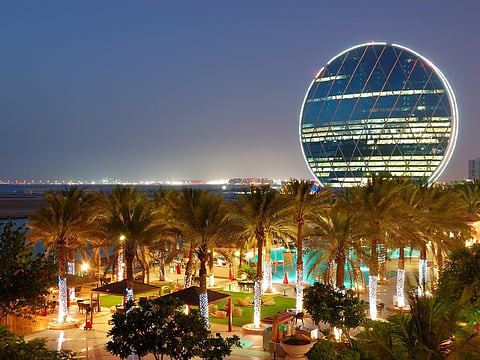UAE most competitive economy in Mena region: World Bank, WEF
World Economic Forum and WB reports state that country’s economy is resilient to shock

Dubai: The UAE has the most competitive economy in the Middle East and North Africa (Mena), says a new study from the World Bank Group and the World Economic Forum.
The Arab World Competitiveness Report 2018, launched Tuesday in Dubai, ranked the UAE as the 17th most competitive country in the world.
Saudi Arabia, ranked 30th most competitive, was another Mena nation to crack the global top 30.
The rankings are based on 12 factors, from education to infrastructure, that are critical for productivity and economic growth.
Increased diversification makes the UAE’s economy most resilient and able to weather the double shock of lower oil and gas prices and reduced global trade, according to report, and better suited to maintain a stable macroeconomic environment.
“The resilience of its fiscal policy will be further strengthened in the future because the UAE was … among the early adopters of the new VAT,” the report states.
In order to further increase its competitiveness, the UAE will have to speed up progress in spreading the latest digital technologies (36th) and upgrading education (36th).
Dubai by night: The Arab World Competitiveness Report 2018, launched on Tuesday in Dubai, ranked the UAE as the 17th most competitive country in the world. Twitter
Education and innovation are two areas where the Mena countries most deviate from their counterparts in more developed nations.
Read more:
Despite this, the UAE benefits from strong institutions, good infrastructure, and a good level of health care and primary education, according to the report.
A view of the container yard at the Jebel Ali Free Zone in Dubai: The emirate's economy flourished for many decades from oil and gas industries. But it has moved on — and diversified in a massive way over the decades, bringing down the share of the oil industry to less than 5% of its economy. Other industries have risen, including trade, real estate, financial services, manufacturing and tourism which now account for the lion's share of its GDP. Gulf News
Throughout the region, however, there are strong macroeconomic headwinds facing the 20 Mena countries.
Despite being non-homogenous, “what is very common across the countries in the Arab world is the issue of the dominance of the public sector …[they] have been the provider of all the jobs, 60 to 80 per cent,” said Mouayed Makhlouf, regional director for the IFC, a sister organisation of the World Bank.
The UAE has fully embraced the renewable economy and hosts the International Renewable Energy Agency (Irena). Earlier this year, Abu Dhabi launched the 1,500-km Electric Vehicle Road trip from UAE to Oman highlighting the strategic value of renewable transport in one of the world's biggest fossil fuel producing regions. Dubai has 200 battery-electric vehicles used as airport limo and hundreds more of hybrid taxis in service. Abdul Rahman/Gulf News
Serious issue
“That is a serious issue.”
With a changing economic landscape, the region will need to generate 58 million jobs by the year 2040 to maintain unemployment rates, and even more to lower them, according to the report.
Workers at aircraft parts maker Strata, wholly-owned by Mubadala Development Co., which has manufacturing facilities in Al Ain, Abu Dhabi, UAE. Strata manufactures parts for aircraft wings and tails, supplying those parts to manufacturers including Boeing and Airbus. Strata manufactures parts used on the Airbus A330, A350, and A380, as well as those used on Boeing’s 777s and 787 "Dreamliners". Gulf News
The report recommends that countries diversify their economies and move away from a model of government-led growth and lessen reliance on natural resources exports.
Sign up for the Daily Briefing
Get the latest news and updates straight to your inbox


